Winter Term 23/24
Monday, the 6th of November 2023, 18 Uhr
Laura Kemmer
Universidade de São Paulo (USP)
Standing by a River: Contesting the Currents of Urban Progress in the Heart of São Paulo
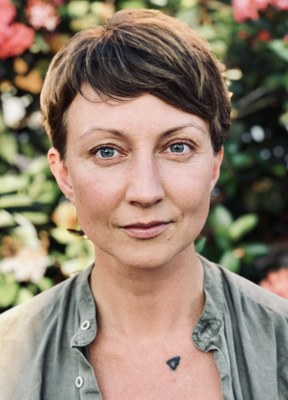
Rivers, historically perceived as carriers of disease and concealed beneath the city's surface, have violently shaped the urban development of São Paulo according to European ideals of modernity. Yet, urban waters also hold the promise of healing, as recognized in Afro-Brazilian and Indigenous cultures. This presentation explores a recent discovery during excavation for a new metro station in central São Paulo—the unearthing of artifacts from a maroon settlement in the former Saracura riverbed. Following the conflict over the “reading” of these artifacts, I show how urban rivers and riparian ecologies of humans, species, and matter act as evidence against verticalization and displacement in contemporary São Paulo.
Monday, the 13th of November 2023, 18 Uhr
Marek Nowak
Adam Mickiewicz University
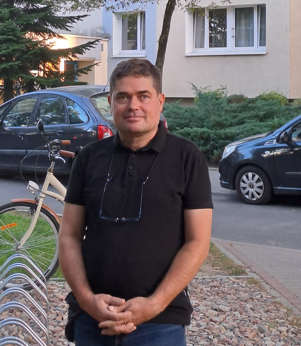
It’s a matter of time: duration of residence and neighborhood relations. Research project and case study from Poland
Late-socialists blocks of flats (LSBFs) are - in urban, architectural and social terms - an important part of the legacy of the Real Socialist regimes in Central and Eastern Europe. To this day, there is an ongoing debate about their vitality or decline. The author analyses the emergence of neighborhood ties in LSBFs.
The lecture aims to define how the strength and peculiarity of neighborhood relations in an LSBF development depends on, among others, the duration of residence. The presentation illustrates the final research stage on a corpus of data collected in 2018 as part of a project analysing neighbourhoods in LSBF in three Polish cities differing in scale: Wronki, Warsaw and Poznan. The conclusions from the entire research project indicate the specificity of areas in large blocks of flats resulting from three types of factors: (a) historical heritage, (b) specificity of urban form, (c) period of habitation, and (d) institutional and economic conditions related to the privatisation processes that took place in the 1990s and the first decade of the new millennium. The research problem was related to the question of the vitality of LSBF. The main conclusion of the research allows us to explain the high standard of post-socialist blocks of flats in Poland in the resulting coincidence of the factors indicated above.
Monday, the 20th of November 2023, 18 Uhr
Petr Kubala
Institute of Sociology, Czech Academy of Sciences
Traces of Obduracy: Imaginaries of "Social Inertia" in the Process of Collaborative Housing Introduction
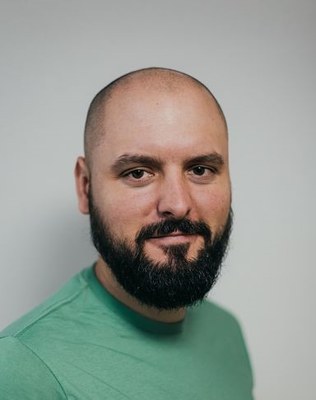
This presentation will delve into the sociotechnical changes necessary to introduce Collaborative Housing (CH) projects into the Czech super-homeownership housing regime. The concept of CH serves as an encompassing term to capture the diverse array of emerging housing models in various contexts. CH represents a form of housing typically rooted in collective self-organization, participation, and cost-sharing practices, including cohousing, baugruppen, resident-led cooperatives, Community Land Trusts, and various community-driven self-help and self-build housing initiatives. The emergence of CH holds several promises, such as enhanced housing affordability, increased environmental sustainability, and the alleviation of loneliness. Recently, these novel housing forms have become a wellspring of inspiration for certain Czech cities struggling with the consequences of multiple crises. These municipalities aim to integrate CH designs into their existing housing system (primarily based on individual homeownership). To gain a deeper understanding of the "obduracy" of the current czech housing system, we examined the primary barriers and threats to the implementation of such projects. This investigation was conducted through a series of workshops involving non-experts in several cities across the Czech Republic. Our findings suggest that the obduracy of the housing system is closely tied to imaginaries, which we define as the 'imaginary of social inertia.' This form of imaginary, in conjunction with other factors, such as a lack of supportive legal and financial infrastructures, creates a complex web of obstacles that reduce the likelihood of these housing projects gaining ground. In conclusion, my talk will underscore the significant role of imaginaries in studying obduracy that can offer specific insights into the mechanisms involved in sociotechnical change within urban contexts.
Monday, the 27th of November 2023, 18 Uhr
Daniela Zupan
Bauhaus-Universität Weimar
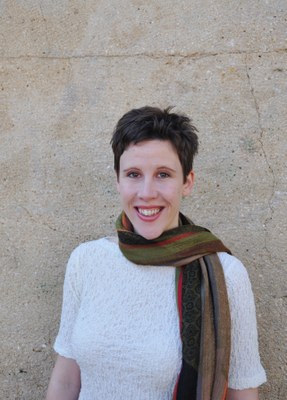
Paving the way for elections – undermining democracy: 'predizborni asfalt' in Sarajevo
The maintenance of roads and sidewalks through asphalt-works belongs to the mundane tasks and responsibilities of public authorities, essential for keeping modern cities running. Cracks and potholes in the asphalt must be fixed, crumbling and washed-out segments replaced and entire streets renewed. Every few years in late summer though – in the run-up to elections –, asphalt works undergo a see change in Sarajevo. The pace and quantity noticeably intensify and official communication channels are full of pictures showing political leaders in front of freshly laid out asphalt patches, inaugurating a finished part or showcasing the achievement of a stage's completion. In recent years, the term 'predizborni asfalt' (pre-election asphalt) gained popularity in the local population to engage with this phenomenon. But the active mobilization of asphalt works during election campaigns not only became the topic of critique, bitter satire and jokes, discussions also reflect honest yearnings for improvement and progress. This talk seeks to unpack the phenomenon of pre-election asphalting in Sarajevo. It holds that with its intensified rhythms of asphalting, its blatant political mobilization and its complex meaning-making processes, pre-election asphalting provides a particularly fruitful lens to study the particularities of urbanism in so-called hybrid regimes. In doing so I will propose three dimensions to conceptualize the latter.
Wednesday, the 6th of December 2023, 18 Uhr
Ayona Datta
University College London
'Why Now?': Timing the digitalising state in the global south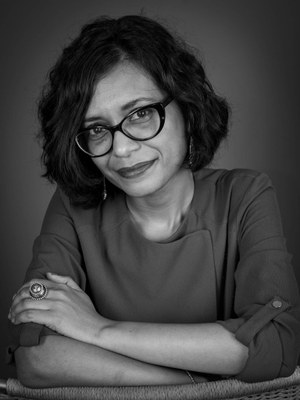
For geographers, the state is often seen as only one actor of many in a global information revolution. In global south contexts however, the state has been at the forefront of initiating large-scale digital transformations through digitisation of paper, e-governance, GIS-based planning and smart cities. As global south states aspire to become fully automated and digitalised in the near future, the timing of their state-led ICT initiatives have become more significant and powerful in their outcomes.
In this lecture, Ayona Datta takes 'timing' as an entry point to understand how the global south state exerts temporal power through its demarcation of past, present and future temporalities, and the ways that it loads the present with promises of the future. Temporal power of the state emerges as it orchestrates a multiplicity of actors and actions by – waiting for their turn, involving for the right duration, engaging in unfolding events, and anticipating what might occur in the near or long-term future. Timing the state means to understand how seemingly disconnected and asynchronous events across UN organisations, global ICT corporations, professionals, intermediaries and a range of marginal communities produce the digitalising state in the global south. Rather than seeing these as discrete non-state events and actors, timing enables us to see these as interconnected asynchronous temporalities that set the tempo, speed and duration of the digitalising state. Timing the state means to understand how the digitisation of paper and automation of governance are interactive sequences that convey temporal information about the spaces where they occur and the actors who make these happen. Taking timing as a verb that is dynamic and oriented towards anticipatory outcomes then enables us to understand the 'why now?' of state digitalisation initiatives and the entanglements of actors, events and information politics in the global south.
Monday, the 11th of December 2023, 18 Uhr
Oleksandra Nenko
collegium member Turku Institute for Advanced Studies, University of Turku
Participatory Mapping of Environmental Values
In her talk Oleksandra will discuss the topic of perceived environmental values and situated emotional experiences which derive from human-environment interaction. She will advocate mapping of the perceived environmental values together with local communities as a participatory action research approach. The social impact of such an approach resides in strengthening pro-environmental behaviors and informing responsive environmental design through increasing place recognition, place attachment and place engagement, and acknowledging environmental agency. Oleksandra will share methodological insights to map cultural and natural, tangible and intangible values people associate with their surroundings. She will highlight offline and online participatory mapping methods. The application of methods will be demonstrated in several empirical cases, including mapping perceived values of urban green areas in St.Petersburg and mapping natural-cultural values of lowly urbanized landscapes in coastal Western Finland. Oleksandra will finalize her presentation by discussing how research on the perceived environmental values can be helpful for sustainable participatory urban and territorial development.
Monday, the 15th of January 2024, 18 Uhr
Martin Coward
Queen Mary University of London
Domination by destruction: Russia’s antiurban way of war
Russia’s invasion of Ukraine has foregrounded its distinctively antiurban way of war. Historically, Russian warfighting has been intertwined with antiurban violence. From Kabul to Aleppo via Grozny, the use of artillery and aerial bombardment to destroy the civilian fabric of the city has been an operational strategy. The targeting of homes, offices, roads, power grids – the infrastructure of everyday civilian life – is deliberate, not simply collateral. In this article I examine this antiurban way of war and argue that these attacks on civilian urban fabric can be understood as both a clearing of space and an undoing of interconnection as both punishment and manipulation of morale. As such they are strategies of domination: antiurban war seeks to erode the capacity of such otherness to resist. The article introduces 3 conceptual innovations for international politics. Firstly, the concept of strategies of domination provides tools for thinking about the politics of violence. Secondly, I show that that urban destruction is always already targeted towards civilians and thus challenges the basis of International Humanitarian Law. I show how the concepts of reverberating effects and entanglement help international politics scholars to think about the legacies of violence. Finally, I show that the slow violence urban destruction causes challenges the temporal horizons according to which international politics scholars traditionally understand war and violence. Instead, I argue that it is necessary to think about the way in which the legacies of destruction lead to long-term, even intergenerational, effects.
Monday, the 22nd of January 2024, 18 Uhr
Madlen Pilz
Leibniz Institute for Research on Society and Space (IRS)
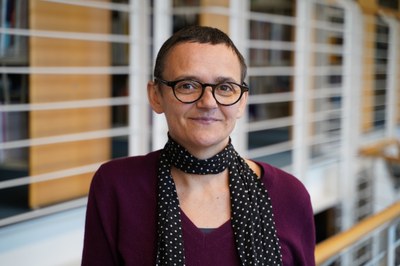
The Role of Money in Integration Work
Finances have been playing an increasingly significant role in German municipal integration policies since 2016, due to increased involvement from both the national government and the EU. On one hand, these funds offer municipalities and those engaged in the field of integration new opportunities and help establish standards within the integration field. On the other hand, these funds are typically time-limited and are intended for initial start-up financing. Often, when the funding expires, it also marks the end of services, positions, and the outflow of accumulated expertise.
In this talk, we explore the effects of the new financial resources on integration work in municipalities, using the experiences of three East German municipalities as examples. How do these financial resources change the work of actors involved in municipal integration work? How do they not only alter options for action but also hierarchies among the actors? What new forms of multi-level and municipal governance structures and strategies emerge as a result? How do these changes affect public debates about integration? Lastly, how can we theoretically conceptualize the role of finances in integration work?
Monday, the 29th of January 2024, 18 Uhr
Niloufar Vadiati
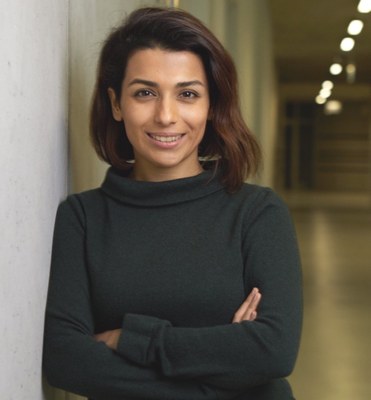
HafenCity University Hamburg & HIIG;
based on Research Project: Grassroots Digital Urbanism
Funded by DFG Walter Benjamin
Kiez being codified: Praxis of Grassroots Digital Urbanism in Berlin
Telling observational and performative tales, I follow multiple, creative, and careful practices of resistance of bottom-up collectives in Berlin. Through the observation method, I have reviewed the different forms of resistance, the discourses underpinning their work and the alternatives they are building. The collectives range from DYI internet infrastructure with autonomous data-hub that contest the deterministic digital technological infrastructure, tech-feminist collectives (cyber feminist cities) that are loudly refusing the current hegemonic subjectivity of digital technology, and the neighbourhood-based digital currency based on the solidarity economy.
As a vignette, this presentation will discuss the communal refusal strategy of these collectives and elaborate on how they are politically, spatially and performatively reappropriating the technological glitches in the city and enabling the (re)imagining alternative modes of digital urbanism in Berlin.
Monday, the 12th of February 2024, 18 Uhr
Sarah Neal
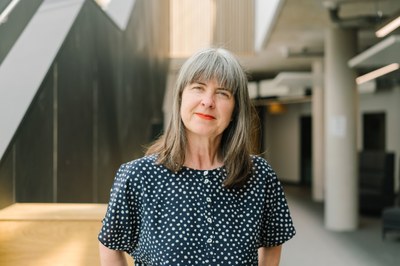
University of Sheffield
For public space: informal sport, urban practices, and why social infrastructure matters
This presentation is based on a paper. It examines the relationship between informal sport and urban inclusion in increasingly superdiverse and increasingly unequal cities. It reflects on the extent to which the growth of collective participation in non-club-based sports activities (for example, volleyball, parkrun, basketball, baseball urban walking, cricket, football) in the open spaces of cities involves groups who are marginalised or under-represented in club-based sport. It considers how informal sports activities may generate forms of belonging and social interaction, while recognising that such activities may incorporate their own mechanisms of exclusion. Over the last decade, theorising on urban social life and ‘lived multiculture’ has re-emphasised the value of social infrastructure (Klinenberg 2018; Latham and Layton 2019) and public space in the making ‘good cities’ (Amin 2006). As urban inequalities become more multi-dimensional, non-income related, environmental resources become ever more critical for social inclusion, practices of belonging and claim making. Yet, despite the increasing numbers of participants in informal sport, its visibility in the everyday spaces of cities and its appeal to socially and ethnically diverse and co-ethnic communities, the ways in which different material, and often micro, environments (e.g., corners of public parks, multi use games areas (MUGAs)) prompt collective informal sport practices have only recently begun to attract debate and research attention (Neal et al 2022).
In this context, the paper draws on the experience of two UK case study cities (London and Sheffield) and place-based fieldwork (compromising visual infrastructure mapping, participant observation, interviews), and focuses on immersive research with a Latin American ecuavoley (a form of volleyball originally developed in Ecuador) group in North London and a British Pakistani cricket group in Sheffield. Drawing on actor centred accounts the paper examines the intersection of bodies, migrant sport legacies, co-ethnic social networks, social media and the negotiated use of urban space to advance perspectives for understanding: first, concepts of informality (Hilbrandt 2021) and urban inhabitance; and second the embodied and affective ways in which trans/national place relationships are socially and materially made through informal sport practices. The research on which the paper is based has been conducted as part of the Economic and Social Research Council-funded project "Just Turn Up: informal sport and social participation in the superdiverse city (2022-24)”.
